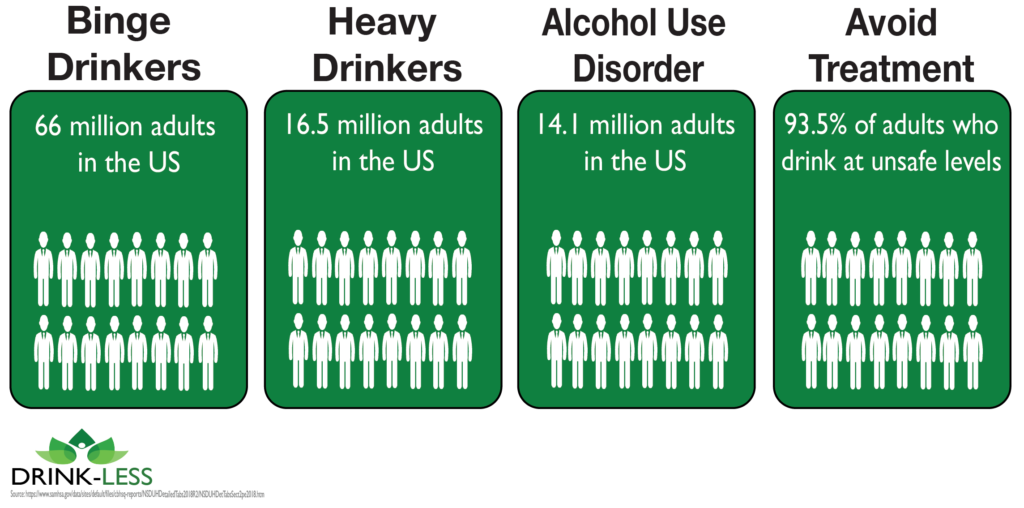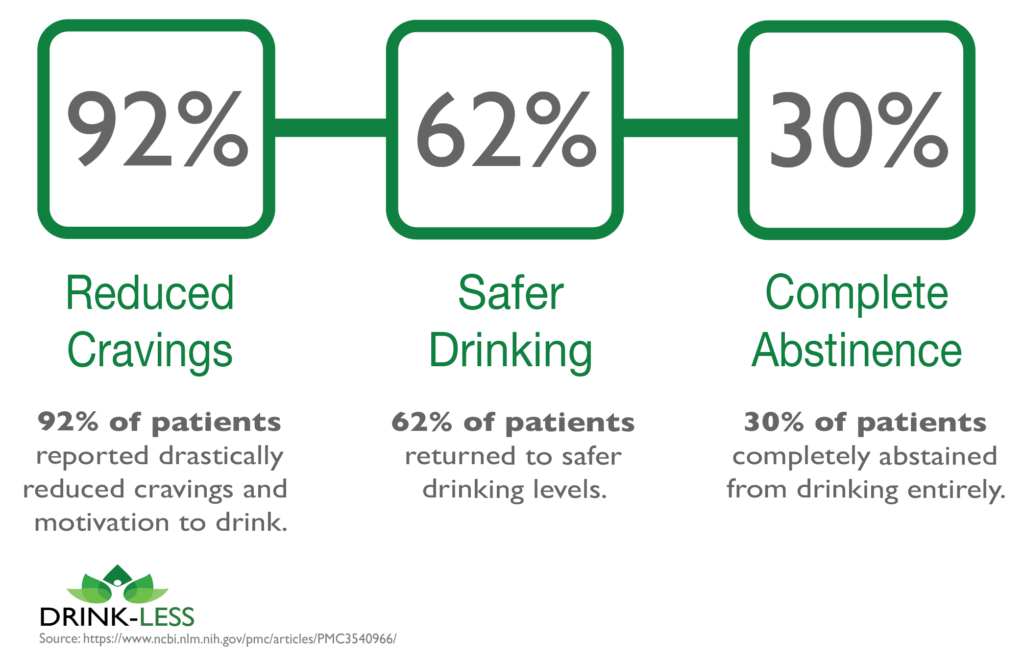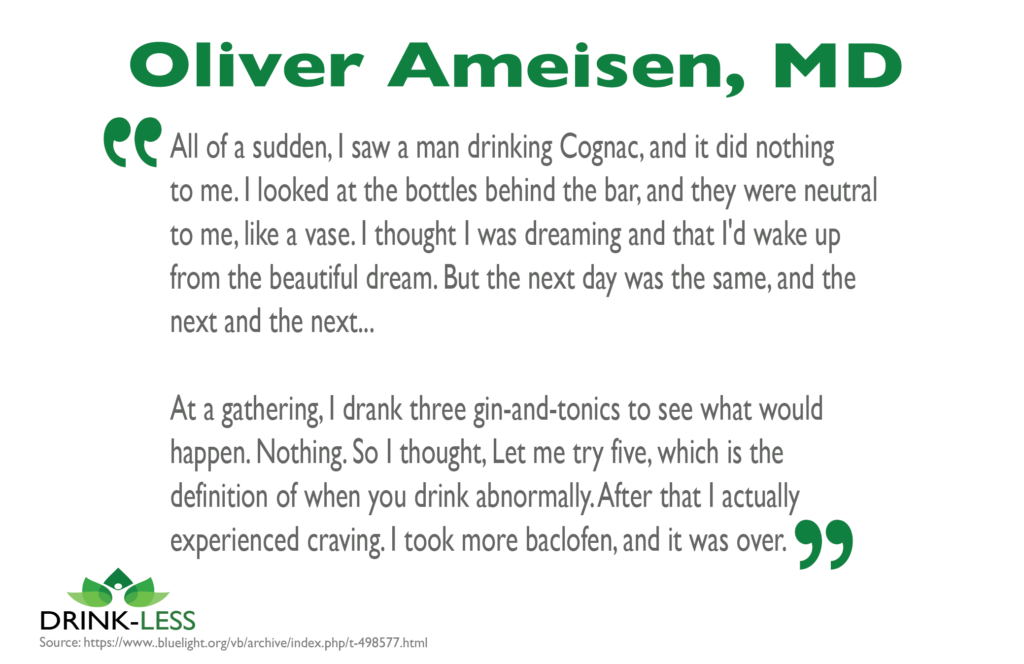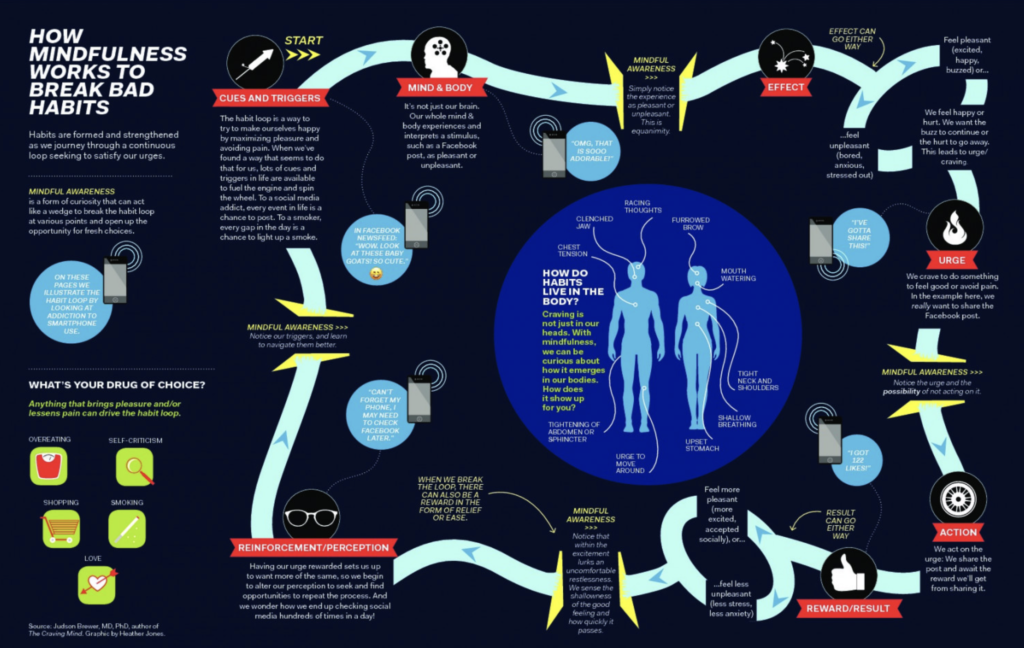Here's What We Do Better
A Scientific approach to reduce alcohol use
MILLIONS ARE IN NEED OF HELP – YOU ARE NOT ALONE




Statistics from the 2018 National Survey On Drug Use and Health indicates that millions of Americans struggle with heavy drinking, binge drinking, and Alcohol Use Disorder (AUD), while only 6% ever seek help. Many avoid treatment in fear of being labeled an alcoholic while others have failed to find an effective and sustainable solution. You are not alone.
A 2 YEAR STUDY – THE RESULTS
Baclofen eliminates cravings for alcohol in 92% of people and decreases their motivation to drink. These strong cravings, coupled with anxiety, are the top two reasons why people have difficulty cutting back or abstaining from alcohol. Clinical trials give Baclofen a 62% success rate returning treatment-resistant alcohol users to normal levels of drinking (i.e., low or medium-risk) over a 2-year period. 50% of those who succeed using Baclofen go further and quit drinking, entirely by choice.2




ALCOHOL CRAVINGS REMOVED




In 2008, Dr. Olivier Ameisen, world-renowned Weill Cornell Hospital cardiologist, uncovered a medical solution to his chronic over-drinking after seven years of AA meetings and several unsuccessful rehab stints. He began experimenting on himself with a prescription medication known as Baclofen, taking increasingly higher doses of the medication until he finally reached a level high enough for him to feel free of cravings for alcohol. Dr. Ameison reports “After years of battling uncontrollable addiction, I have achieved the supposedly impossible: complete freedom from craving”. Results support this claim by demonstrating that the medication decreases the release of dopamine in the reward pathway of the brain, eliminating or suppressing the conditioned response to alcohol.3
ALCOHOL CRAVINGS REMOVED
Psychiatrist and addiction expert Judson Brewer is well known for his research on how mindfulness can be used to harness the brain’s habit-forming process to build healthy habits that aren’t driven by cravings. The research finds that specific actions and process repeated (e.g., heavy drinking or binge drinking) over time create a tightly wound habit loop that is quite dangerous, but possible to unwind with mindfulness. Actively practicing mindfulness in daily life gives individuals the ability to take a step back, understand see what is happening inside the mind and take action to break the dangerous loop.4




THE SCIENCE OF ADDICTION



ANXIETY AND ALCOHOL USE
START YOUR JOURNEY
Get in touch with our team to start making more positive choices around alcohol.
